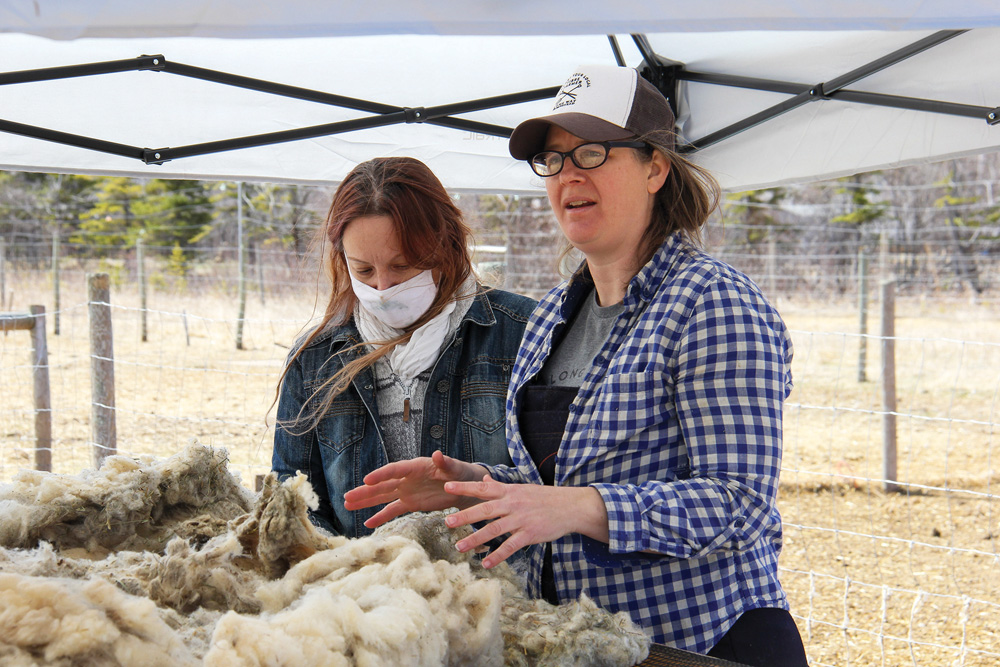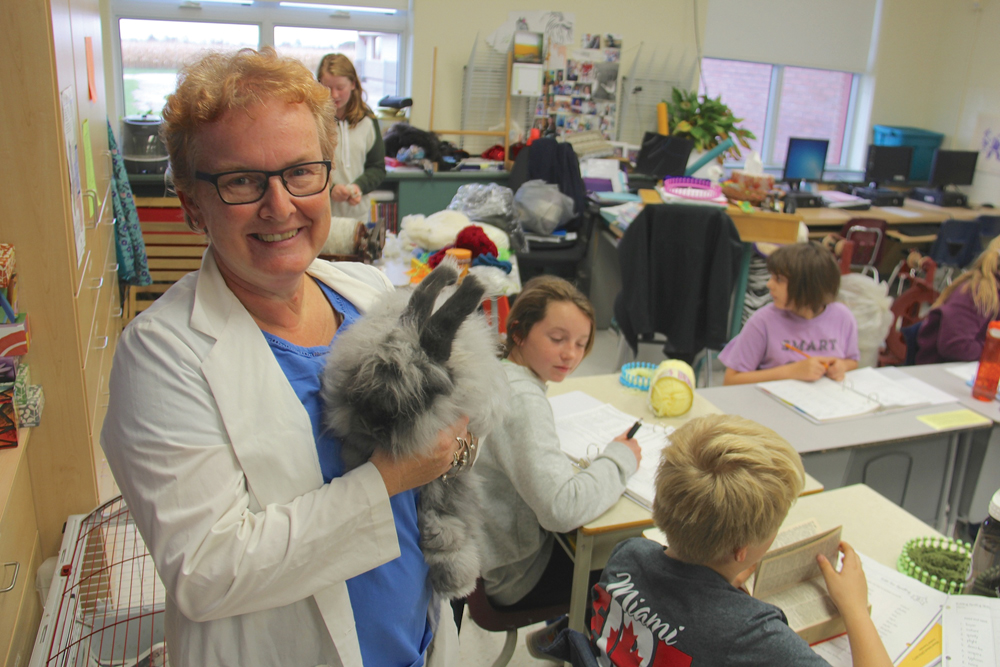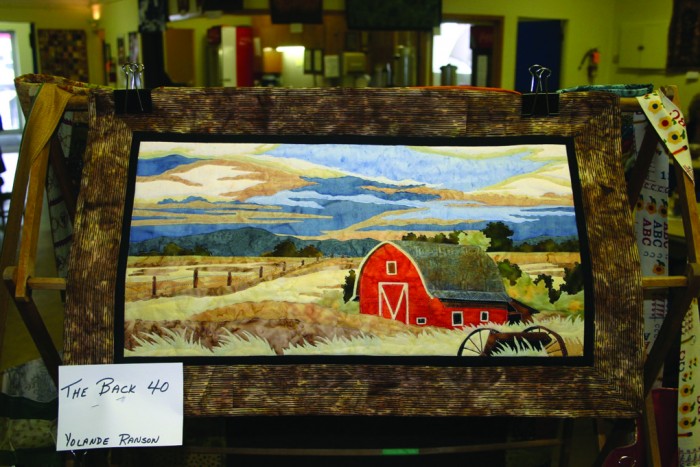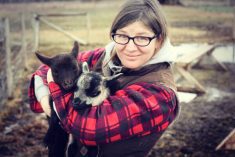Ssshhhh! People are sleeping, and very soundly, thanks to their wool mattresses and comforters.
The products are handcrafted by a Roseau River-area family that’s been quietly in the bed-making business — more precisely the making of pure wool beds — since 2002.
Janet and Tim Kroeker were inspired to start Shepherd’s Dream by Janet’s sister’s own successful U.S.-based company of the same name.
“My sister led the way,” says Janet Kroeker, today part of a production team that includes husband Tim, son Tom and a Vita-area neighbour, together making wool mattresses, toppers, comforters and pillows and other bed wares sold online.
Read Also

Manitoba author dissects wool supply chain politics
Anna Hunter’s new book, The True Cost of Wool, explores current wool production systems in Canada and pitches more robust local manufacturing
Janet’s sister, Eliana Jantz, first began making wool pillows and comforters in the early 1980s, over time refining her skills and understanding of all components of the wool bed, and working with wool growers in California, which ultimately led to the launch of the Shepherd’s Dream south of the border in 1997 in the small town of Montague, California.
Both companies are built around a simple, fundamental principle — that a well-made bed will produce healthier sleep, and that wool-filled beds are the most ideal sleep environment.
Tim and Janet, originally from Steinbach, and a teacher and nutrition educator respectively, describe a soft start to their own venture.
They’d moved to Roseau River, were raising a young family and at one of those junctures in life when you look around for something new to try, says the couple.
They weren’t keen to get into anything too big too fast.
“I think with about $6,000 we were launched, just by keeping and doing everything at home,” said Janet. That bought a good-quality sewing machine, computer and internet connections, and the initial materials they needed to start up.
It was not an overnight success, but they shared the passion and principles Eliana was fostering with her company, and were dedicated to producing the same high-quality product in Canada.
Customers began to discover them after taking product to shows and talking about the merits of the wool bed on their website.
“We’ve found over the years that different people value what we do and make for different reasons,” says Tim.
An aging populace in search of improved sleep is a trend definitely in their favour. Many customers are in search of improved personal comfort and have heard about wool’s attributes, such as its breathability and ability to relieve pressure points, he said.
Others are motivated by a preference for natural products produced in environmentally sustainable ways. They’re looking for things that last, that are produced in ecologically sound ways.
“Increasingly it’s young families that are coming to us,” said Janet.
Shepherd’s Dream remains a small enterprise by their choosing, say the Kroekers, who describe it as a good fit for the rest of their lives and right size for the market that’s out there. The bedding market is massive but the natural bedding market is just a small niche or segment within it, say the Kroekers.
“And we’re happy being small,” says Tim. “We don’t want to get really big and complicated.”
Their son, Tom, now makes the heavier mattresses and woollen toppers in his live-work space in the Exchange District in Winnipeg. They contract out the comforter making to a Vita-area neighbour who also works from home.
One might assume they raise their own raw material too, but their small cottage industry doesn’t include a flock of sheep, nor do they process raw wool.
Wool used in their smaller products, like pillows and small mattresses, is Canadian wool. Most of their larger items are made with Eco wool, a branded blend of wool produced by The Woolgatherer Carding Mill in northern California.
That mill produces the wider-width batts they require for their mattresses, say the Kroekers. Plus its processing methods meet their products’ environmental specs, including that no harsh chemicals be used washing and processing fleece, and that sheep producers raising the six to eight breeds producing the wool adhere to specific production criteria.
Ideally, they’d be sourcing wool produced here at home, said Janet. But no mill in Canada meets their requirements.
“What it comes down to is there’s sheep and there’s wool in this province but there isn’t processing,” she said.
Should consumer demand for bedding begin to shift to natural bedding, that would merit more processing, boost demand for homegrown wool, and create space for more local bed-making businesses, say the Kroekers.
Ultimately, that’s the mission, vision and dream of Shepherd’s Dream.
“Our aim is to produce a good product that will help to change the tendency for people to buy synthetic bedding products,” said Tim.
“We’re doing our little bit to expand the natural market.”




















